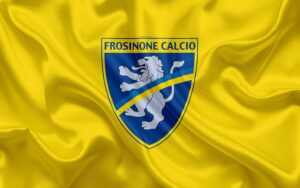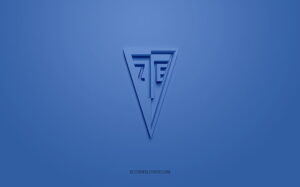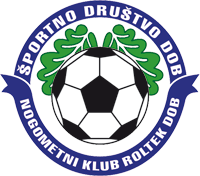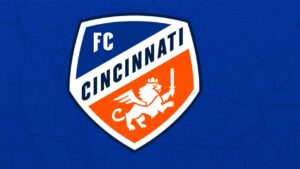Manchester United Football Club, one of the most recognized and successful football teams in the world, represents the very essence of English football. Based in Old Trafford, Greater Manchester, this iconic club has built a rich history filled with triumph, resilience, and global influence. In this article, we’ll explore the remarkable journey of Manchester United FC, from its humble beginnings to becoming one of the most powerful sports brands on the planet u888.
The Origins and Formation of Manchester United FC
The story of Manchester United FC began in 1878 when it was founded as Newton Heath LYR Football Club by the carriage and wagon department of the Lancashire and Yorkshire Railway. Initially, the team played in local competitions and wore green and gold kits — colors that are still cherished by supporters today as a symbol of tradition.
In 1902, the club faced financial difficulties, but local businessman John Henry Davies stepped in, invested in the team, and changed its name to Manchester United Football Club. This marked the birth of a new era, as the club began to attract attention for its competitive spirit and ambition to dominate English football.
Rise to Prominence: The Busby Era
The post-war period saw Manchester United enter a golden age under the leadership of Sir Matt Busby, one of the most visionary managers in football history. Busby’s focus on youth development and attacking football transformed the club’s identity. He built the legendary “Busby Babes,” a team full of young, talented players who captured the imagination of fans across England.
Tragedy struck in 1958 when the Munich Air Disaster claimed the lives of eight players and three staff members. Despite the devastation, Busby rebuilt the team with resilience and determination. Ten years later, Manchester United achieved its most historic triumph by winning the European Cup in 1968 — becoming the first English club to win the prestigious tournament.
The Ferguson Dynasty: A Reign of Unmatched Success
If Sir Matt Busby built the foundations, Sir Alex Ferguson elevated Manchester United to global dominance. Appointed in 1986, Ferguson transformed the club into a footballing powerhouse. His philosophy of discipline, teamwork, and never giving up shaped Manchester United’s modern identity.
During Ferguson’s remarkable 26-year tenure, Manchester United won 13 Premier League titles, 2 UEFA Champions League trophies, 5 FA Cups, and numerous other honors. The famous 1998–99 treble-winning season, when the team captured the Premier League, FA Cup, and Champions League in the same year, remains one of the most iconic achievements in world football.
Ferguson’s leadership developed generations of stars, including Ryan Giggs, Paul Scholes, Eric Cantona, Roy Keane, David Beckham, Cristiano Ronaldo, and Wayne Rooney — players who defined an era and inspired millions of fans.
Old Trafford – The Theatre of Dreams
Manchester United’s home ground, Old Trafford, is more than just a stadium; it’s a symbol of footballing heritage. Opened in 1910, Old Trafford has a capacity of around 74,000 spectators, making it one of the largest stadiums in Europe. The venue has witnessed countless memorable moments — from title celebrations to dramatic comebacks — and continues to host fans from every corner of the globe.
Nicknamed “The Theatre of Dreams” by Sir Bobby Charlton, Old Trafford stands as a pilgrimage site for football fans, representing Manchester United’s spirit, passion, and connection with its supporters.
Modern Era: Challenges and Ambitions
After Ferguson’s retirement in 2013, Manchester United entered a period of transition. Several managers, including David Moyes, Louis van Gaal, José Mourinho, and Ole Gunnar Solskjær, have taken charge, each attempting to restore the club’s former glory. Although the team has experienced ups and downs, its commitment to rebuilding remains strong.
Under new leadership and strategic investments in world-class players, Manchester United continues to compete at the highest levels of English and European football. With rising stars like Marcus Rashford, Bruno Fernandes, and Alejandro Garnacho, the future looks promising for the Red Devils.
Global Influence and Fanbase
Manchester United’s influence extends far beyond football. The club has one of the largest global fanbases, estimated at over 1.1 billion supporters worldwide. From Asia to Africa, America to Europe, millions of fans proudly wear the red jersey every matchday.
Through social media, merchandise, and global partnerships, Manchester United has built a brand that transcends sport. The club’s commercial power, combined with its historic success, makes it one of the most valuable sports franchises in the world.
The Red Devils also play an important role in community outreach through the Manchester United Foundation, which supports education and youth programs across the UK and abroad.
Playing Style and Philosophy
Manchester United is famous for its attacking, fast-paced style of play — a tradition dating back to the Busby and Ferguson eras. The emphasis on youth development, counterattacking football, and late-match determination embodies the club’s motto: “Youth, Courage, Success.”
The Academy of Manchester United continues to produce exceptional talent. Players like George Best, Ryan Giggs, and Marcus Rashford are living proof of the club’s ability to nurture homegrown heroes. This philosophy keeps the team’s identity intact even as modern football evolves.
Honors and Achievements
Manchester United’s trophy cabinet is among the most decorated in football history. The club has won:
-
20 English league titles (a record in England)
-
12 FA Cups
-
6 League Cups
-
3 UEFA Champions League titles
-
1 FIFA Club World Cup
-
1 Europa League
-
1 Intercontinental Cup
These remarkable achievements underline the club’s status as a global footballing giant.
Conclusion
Manchester United FC is not just a football club — it’s a legacy built on dreams, resilience, and passion. From the ashes of tragedy to the heights of global success, the Red Devils have inspired generations of players and fans alike.
As the club continues to evolve, its mission remains clear: to play attacking football, develop young talent, and win with pride. Whether you’re watching from the Stretford End or halfway across the world, Manchester United unites people under one belief — that greatness is earned through courage, teamwork, and unwavering faith.





